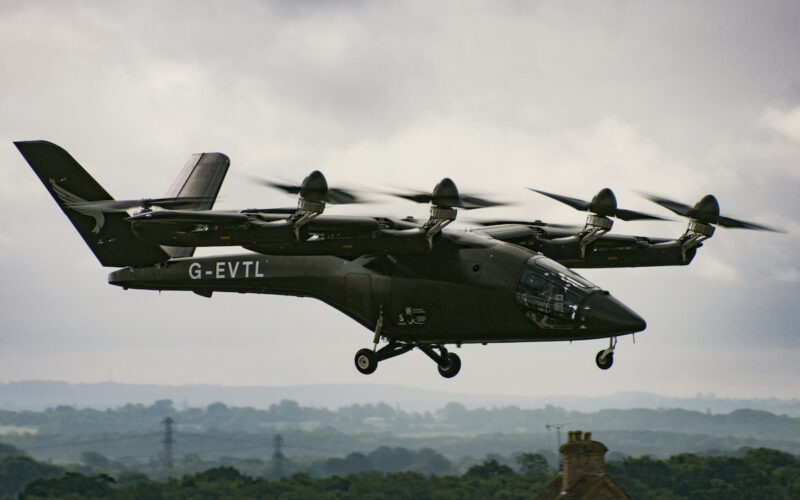Vertical Aerospace’s prototype electric vertical take-off and landing (eVTOL) aircraft appeared to suffer damage after it crashed during flight testing at Cotswold Airport (GBA) in the United Kingdom (UK).
The prototype, named Vx4, was performing an unmanned flight test on August 9, 2023, when it is understood a hard landing resulted in damage to the aircraft.
According to a source at the airport, who advised freelance journalist Charlotte Bailey, the crash occurred when the aircraft was approximately 20ft in the air and it suffered “significant structural damage”.
A photo following incident shows the Vertical Aerospace eVTOL on the ground, but it is difficult to ascertain exactly what damage to the aircraft has been caused.
In a Securities and Exchange Commission (SEC) filing from Vertical Aerospace the eVTOL developer confirmed an incident had occurred during a “motor failure test scenario” but there were no injuries.
“On Wednesday August 9, 2023, Vertical Aerospace Ltd.’s experimental prototype aircraft was involved in an incident during flight testing at its Flight Test Centre at Cotswold Airport, UK. The aircraft was remotely piloted and there were no injuries,” the SEC filing read.
The document added: “Our flight test program is designed to establish the limits of the aircraft’s performance, and the incident occurred during an uncrewed test of the aircraft’s maneuverability during a motor failure test scenario, which is a key requirement to progress to crewed operations. We are working closely with the relevant authorities.”
In August 2023, in a letter to shareholders announcing the company’s second quarter results Vertical Aerospace said it had performed 18 take-offs and landings so far.
“The aircraft lifted, hovered, flew, and landed all by the thrust of its electric propulsion system and powered only by Vertical’s proprietary battery packs,” the letter said.
In July 2023, the British company announced it had successfully flown a full-scale prototype (untethered) for the first time and reached a speed of 40 kts (74 km/h).

